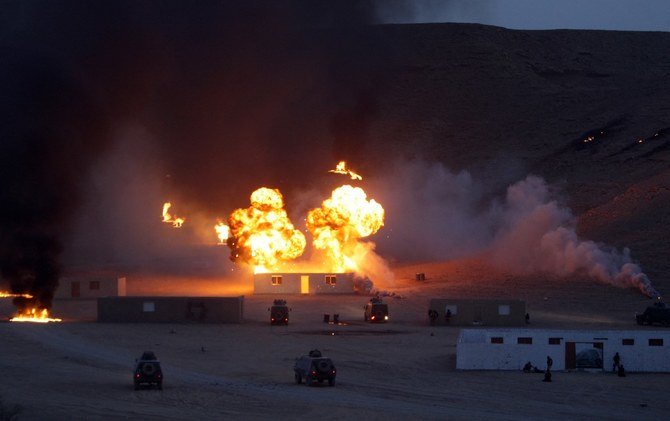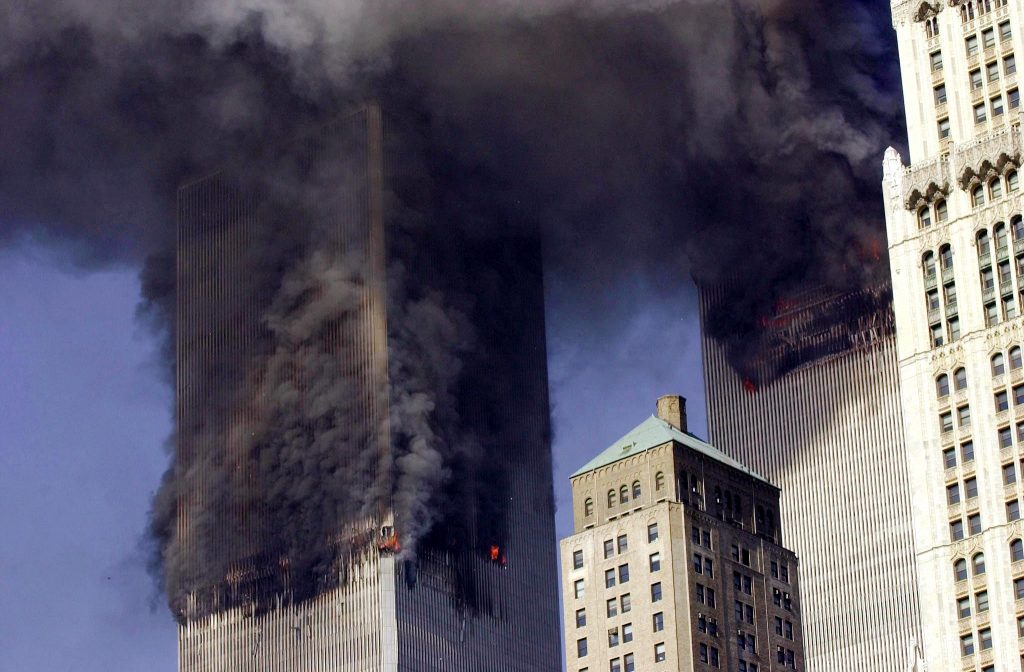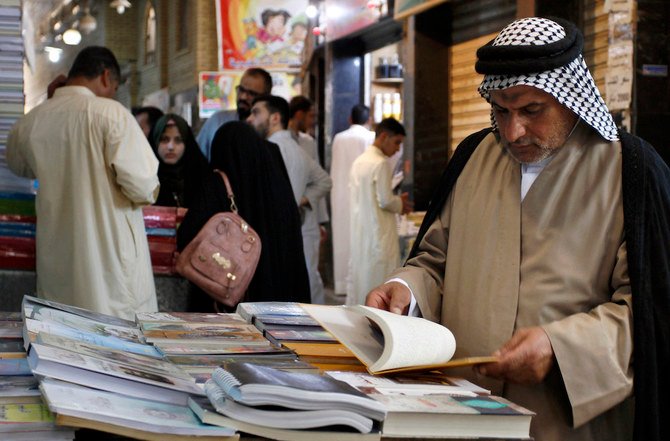JEDDAH: “We will not spend 30 years of our lives dealing with extremist ideologies. We will destroy them today and immediately.” Saudi Arabia’s Crown Prince Mohammed bin Salman made this seminal commitment at an investment conference in Riyadh in October 2017.
The remark was not meant for mere media consumption; it established a new roadmap for dealing with extremist ideologies that, in recent decades, have menaced the world in general and Saudi Arabia in particular.
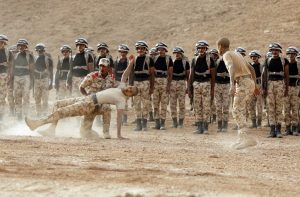
With the US preparing to mark the 20th anniversary of the 9/11 attacks, now is as good a time as any to recall Saudi Arabia’s exploits in the fight against terrorism and the ideology of Islamic extremism. For, as Prince Turki Al-Faisal, the former Saudi ambassador to the US and intelligence chief, said during a panel discussion in Washington, D.C. in 2016, “Saudi Arabia is a victim of terrorism as much as the United States, and by the same terrorist groups.”
The first of the terrorist attacks was the Juhayman incident — or the siege of the Grand Mosque in Makkah — in 1979. A group of several hundred militants led by Juhayman Al-Otaibi stormed the mosque, the holiest site in Islam, took hundreds of innocent pilgrims hostages and turned the structure into a battleground before they were overpowered by commandos. More than 250 people were killed and another 560 injured in the two-week standoff.
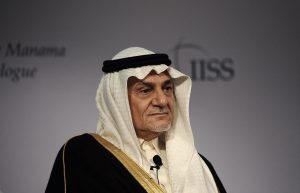
In 1987, Iranian pilgrims inspired by the revolutionary ideology of the regime in Tehran clashed with security forces in Makkah during the Hajj pilgrimage, leading to more than 400 deaths. This deepened the commitment of Saudi Arabia’s rulers to eradicating radicalism and protecting the Kingdom from terrorist attacks and extremist ideology.
Next it was the turn of the Saudi capital to experience terror first hand. In November 1995, a massive car bomb went off in front of a residential building belonging to the Saudi National Guard. Five Americans and two Indian nationals died in the attack, and dozens of others of different nationalities were wounded.
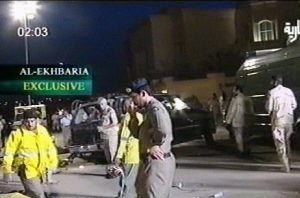
The bombing was carried out by four young Saudi men who had been influenced by the speeches of Al-Qaeda leaders in Afghanistan and the ideas of the Kingdom’s Sahwa movement.
The Sahwa, or “awakening” movement, was led by extremist clerics influenced by the Muslim Brotherhood. Less than a year later, in May 1996, the men responsible for the bombing were executed. But other extremist cells were busy hatching plots. On June 25, 1996, the city of Alkhobar, in the Eastern Province, was struck by a massive bomb.
The terrorists targeted the Khobar Towers, an eight-story building occupied by American airmen and soldiers. The attack killed 19 members of the US Air Force as well as a Saudi citizen, and wounded 498 residents of different nationalities.
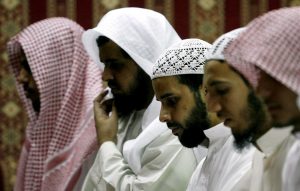
It was later established that the attackers had ties to Iran’s Islamic Revolutionary Guard Corps. One of them, Ahmed Al-Mughassil, had fled after the bombing to Iran and then to Lebanon. Saudi authorities managed to arrest him in Beirut in August 2015, according to reports.
After 1996, seven years passed before Al-Qaeda, the terrorist group led by Osama bin Laden, began a series of operations against Saudi Arabia — on May 12, 2003. The most prominent of these was the bombing of three residential complexes in Riyadh — Dorrat Al-Jadawel, Al-Hamra Oasis Village, and Vinnell Corporation — using four car bombs. The coordinated attacks left 39 people dead.
Seven months later, extremists also inspired by Al-Qaeda carried out bombings at Al-Muhaya near Riyadh in November 2003, killing 17 and wounding 122. On April 21, 2004, a suicide car bomber blew up the General Security building in Riyadh, the headquarters of the domestic anti-terrorism effort, and killed at least 10 people.
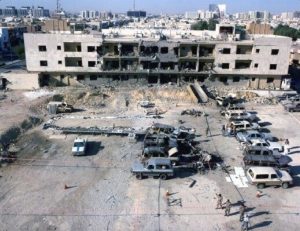
The collective toll has been massive. In 2018, the Presidency of State Security said that over the previous 21 years, 863 terrorist operations had been carried out in Saudi Arabia, out of a total of 1,096 planned. The number of victims was 3,007, while 333 security officers lost their lives, 695 terrorists were killed and another 346 were wounded.
The PSS also listed the firearms and explosives it had seized: 4,529 weapons of varying types, 450 homemade bombs, three SAM-7 surface-to-air missiles, 374 rocket propelled grenades, 241 explosive belts and 47 tons of military-grade explosives.
What amounted to a fierce war prompted Crown Prince Mohammed bin Salman to move forward with a campaign against extremism, terrorism and associated ideology. Subsequently the Kingdom took a series of steps that contributed to eliminating terrorist operations locally and to exposing and combating extremist ideology internationally.
Earlier, the Kingdom announced on Dec. 15, 2015, that it was setting up the Islamic Military Counter Terrorism Coalition (IMCTC), an alliance grouping opponents of extremism. The initiative aimed to combat terrorism in all its forms, no matter the sect or its name, according to the statement announcing the coalition.
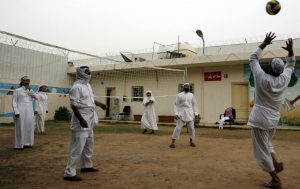
The IMCTC brings together 41 Muslim countries which participate in a joint planning and decision-making process. The coalition mans a joint operations room based in Riyadh which works to combat extremist ideology and coordinates efforts to confront terrorist planning and execution.
Saudi Arabia has not stopped with the creation of the IMCTC. On April 30, 2017, Crown Prince Mohammed bin Salman established and chaired the Ideological War Center, which is affiliated with the Ministry of Defense. It is tasked with fighting the roots of extremism and terrorism in addition to consolidating the concepts of the true religion.
According to Saud Al-Otaibi, an analyst and researcher in security and terrorist issues, in setting up the IMCTC Saudi Arabia sent a clear message to the world that Islam has nothing to do with terrorism and that terrorism has no religion.
Al-Otaibi pointed out that the Kingdom’s efforts have not been limited to the IMCTC. It has also set up the Global Center for Combating Extremist Ideology, Etidal, inaugurated in May 2017 by King Salman, US President Donald Trump and other leaders who attended the Arab Islamic American Summit in Riyadh.
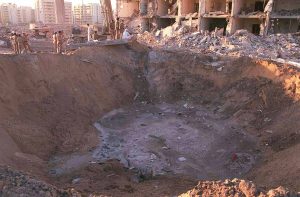
Etidal has received $110 million in financial support. Abdul Aziz Al-Harthy, a legal adviser, told Arab News that the enactment of legislation targeting ideology is another pillar of the Saudi war on extremism.
New laws mandate monitoring of financial flows and limit the channeling of all donations through the King Salman Humanitarian Aid and Relief Center, KSrelief. This deters financial support for terrorism by classifying entities and identifying people who support terrorism.
Al-Harthy pointed to a televised meeting in April 2021 when the crown prince said: “Anyone who adopts an extremist approach, even if he is not a terrorist, is a criminal who will be held accountable by law.”
Al-Harthy said: “One of the most important features that confirm the Kingdom’s determination and firmness in combating extremism is the prosecution of terrorists and bringing them to justice so that they receive a deterrent punishment for what they have committed against Islam and the state.”
Twitter: @md_sulami



